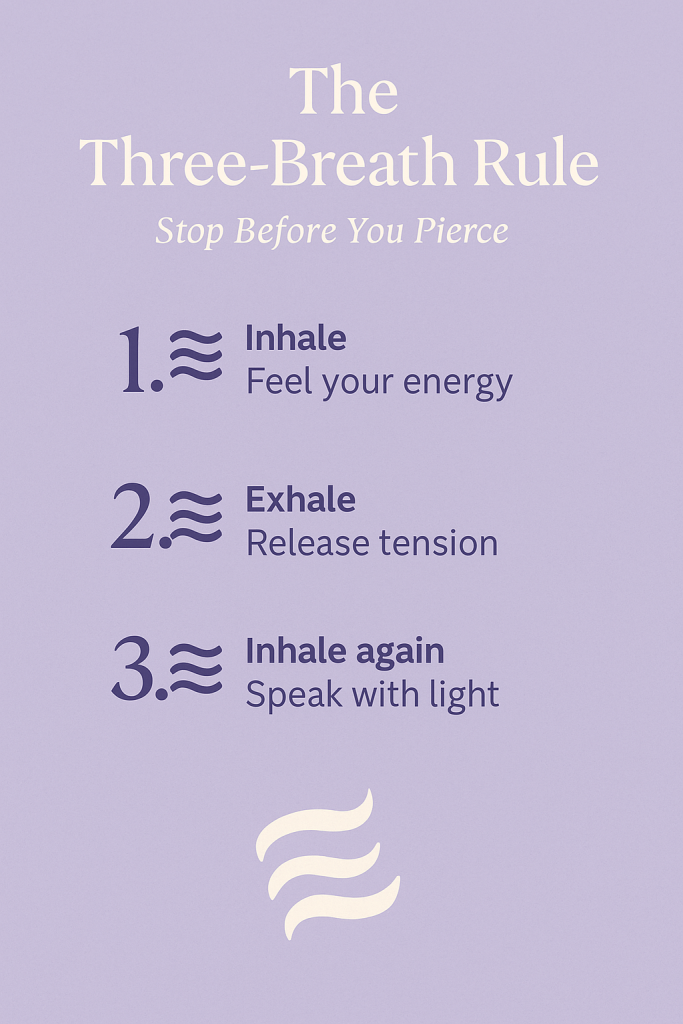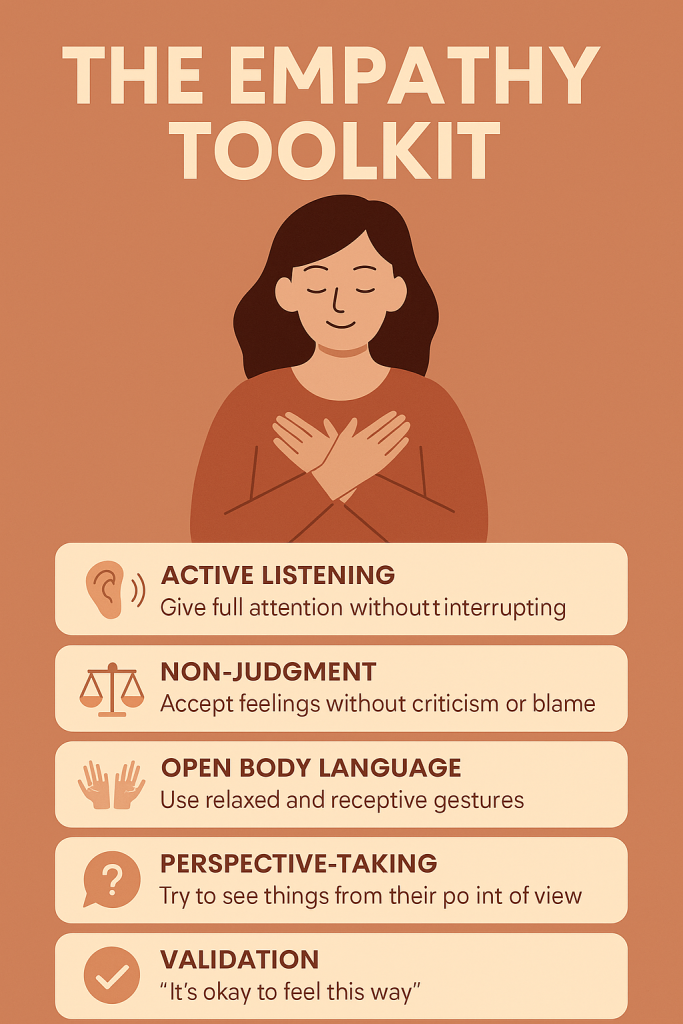The Hidden Energy Behind Every Word
Most of us never intend to hurt others’ feelings. Yet, even the kindest person can accidentally bruise someone’s heart with a careless phrase, a defensive tone, or a distracted silence. Why does this happen? Because words are not just sound—they’re energy.
When you speak, you transmit vibration. That vibration carries emotion, intention, and consciousness. Even if your logic seems kind, your energy might tell another story. This is why psychics, empaths, and intuitive healers emphasize energetic awareness over verbal perfection. You can say the right thing with the wrong energy and still cause harm—or say something clumsy with loving intent and heal a rift.
Every interaction, from texting your partner to chatting with a coworker, is an energy exchange. The unseen frequency behind your words matters more than the words themselves. Psychics teach that when you become aware of your vibration before speaking, you start preventing emotional harm before it happens.
That’s where empathy—and a little intuition—come in.
Understanding the Energy Exchange in Human Interaction
Scientists and spiritualists surprisingly agree on one thing: emotions spread. Research from Frontiers in Psychology shows how emotional contagion happens unconsciously—our nervous systems mimic the energy around us. When you’re around someone anxious, you might feel anxious too. When you speak sharply, others absorb that vibration even before understanding your words.
From a psychic viewpoint, this is energetic resonance. Every conversation leaves a trace—like ripples in a pond. If your emotional field carries irritation or judgment, those ripples reach others whether you intend it or not.
A psychic once described it this way: “You can’t whisper calm if your aura is shouting frustration.”
Consider a common situation: You’re tired and someone asks an innocent question. You sigh before answering. They instantly tense, not because of your words, but because of your energy lag. The vibration of fatigue becomes misread as annoyance.
Becoming aware of your energetic output—tone, timing, facial expression, emotional charge—is like adjusting the volume of your aura before you speak. It’s emotional volume control.
The Role of Empathy in Psychic and Everyday Communication
Empathy isn’t just kindness; it’s perception. It’s the ability to feel what another person might be experiencing beneath the surface. In psychic work, empathy functions as a kind of energetic radar—sensing shifts in emotional weather before storms appear.
But empathy operates on two levels:
Emotional empathy means you feel what others feel.
Energetic empathy means you sense their state before they express it.
This second kind is what psychics rely on to navigate sensitive readings and conversations. Imagine noticing a friend’s “off” energy before they speak and softening your tone instinctively. That’s intuitive empathy at work.
Empathy helps you prevent hurting others because it rewires your awareness. You begin to sense when words might land too hard or timing feels wrong.
A real-life example: A psychic reader noticed a client’s heart rate rising before a tough reading topic. Instead of pushing forward, she paused, let the energy settle, and rephrased her words. The client later said, “You didn’t just read me—you protected me.”
The power of empathy lies in that moment of pause—the split second where compassion replaces impulse.
The Psychic Perspective: Intuition as Emotional GPS
Intuition acts like a built-in navigation system guiding you through emotional terrain. Psychics describe it as “feeling the room without needing words.” You can do this too—you just need to listen inwardly before you speak outwardly.
A study in Forbes found that emotionally intelligent leaders succeed not by reacting quickly, but by pausing, reading emotional cues, and aligning response to resonance. This mirrors what psychic teachers have known for centuries: empathy, awareness, and timing determine harmony.
Intuitive cues show up as physical sensations—tightness in your chest, chills, or a sudden nudge to stay silent. Psychics interpret these as emotional data points from the collective field. You can practice this by asking your body before replying: Does my energy feel open or tense right now?
One psychic once shared a story of preventing a family argument during a reading. She sensed a wave of tension before a client mentioned their sibling. Instead of diving into details, she shifted tone and spoke calmly about “family healing energy.” The client later said, “You stopped a fight that hadn’t even started.”
That’s intuition in action—psychic empathy as emotional GPS.
The Mirror Effect: How Others Reflect Our Unresolved Feelings
Here’s a spiritual truth that stings a little: most of what irritates us in others mirrors what we haven’t healed in ourselves. In psychic practice, this is called the energetic mirror effect. If you often hurt others unintentionally, it might not be about words—it might be about unprocessed emotions projecting outward.
For example, if you fear rejection, you might unconsciously push people away before they can reject you. If you’re secretly resentful, even polite remarks may carry sharp undertones. Energy doesn’t lie; it leaks.
Psychics often cleanse their energy before client sessions to avoid this projection. A useful tip for anyone: before emotionally charged conversations, take a moment to breathe and imagine your energy field clearing. Visualize exhaling resentment or anxiety until you feel neutral.
At work, this can prevent accidental misfires. Picture an employee replying too quickly to a tense email. Instead, they pause, reread their response through an empathic lens, and adjust tone from defensive to collaborative. That small energetic shift transforms potential conflict into cooperation.
When you understand that your emotions echo through others, you gain the power to choose resonance instead of reaction.
How to Pause Before You Pierce: Mastering Real-Time Energy Awareness
Most emotional wounds are accidental. They happen in those milliseconds before awareness catches up with reaction—when we speak faster than we feel. Psychics call this “energetic blurting,” a sudden release of energy that bypasses the filter of empathy.
The solution is deceptively simple: pause. But not any pause—a conscious pause where energy recalibrates before sound becomes speech.
Try the Three-Breath Rule.

Inhale: Feel your energy.
Exhale: Release tension or irritation.
Inhale again: Visualize your next words glowing in white light before you speak.
This simple act aligns vibration with intention. It’s psychic first aid for conversations.
Many psychics even visualize the other person’s aura before responding. If the energy looks heavy or dim, they soften their tone. If it feels open and curious, they match that lightness. The point isn’t to manipulate but to harmonize.
And yes, sometimes humor helps too. One intuitive coach joked, “Never text when Mercury’s retrograde or when you’re mad.” Translation: don’t communicate from chaos. Cosmic timing aside, it’s always wise to wait until your emotions settle before engaging.
Pausing isn’t weakness—it’s energetic leadership. It tells the universe, I choose peace over impulse.
Energy Hygiene for Empaths
If you feel other people’s emotions intensely, you’re probably an empath. That sensitivity is beautiful—but it can also backfire if you absorb too much. Psychics know that empathy without boundaries leads to energetic burnout.
The goal isn’t to build walls but filters. You want to feel with others, not for them.
Here are key practices:
Shielding: Visualize a soft, light bubble around you before emotional conversations. It keeps compassion in and chaos out.
Grounding: After tense moments, reconnect to your body by walking barefoot, drinking water, or touching wood or stone.
Release Ritual: Imagine brushing energy off your shoulders, saying silently, This emotion is not mine.
Science even supports this. A Michigan State University article explains how emotions spread through social contagion—our brains naturally sync with others’ moods. Energy hygiene simply reverses that process by re-anchoring your vibration.
Empaths must remember: feeling someone’s sadness doesn’t mean you have to carry it. Compassion doesn’t require exhaustion—it requires awareness.
The Empath’s Guide to Speaking with Grace
Empathy isn’t just internal awareness—it’s external expression. The most psychic thing you can do is speak truthfully and kindly.
When you communicate with grace, you’re not avoiding honesty—you’re choosing delivery that doesn’t puncture someone’s energy field. Here’s how psychics practice compassionate truth-telling:
Lead with “I” Statements: “I feel” opens connection; “You always” triggers defense.
Match Energy Before Message: Tune in to the listener’s vibe. Are they tense or open? Match gently, then guide the energy higher.
Infuse Warmth: A simple smile or calm tone softens even hard truths.
Example: A psychic delivering a reading about a breakup doesn’t say, “It’s over.” Instead, they might say, “The energy between you is completing its cycle—it’s time for new growth.” The same truth, but spoken with healing frequency.
Words are spells. The vibration of delivery determines whether they wound or awaken.
When you remember that communication is energetic exchange, you start listening not just with ears—but with intuition.
When You’ve Already Hurt Someone: Psychic Energy Repair
Even the most empathic person will slip sometimes. What matters is how you repair.
Psychic healing begins with intention. When you realize you’ve hurt someone, take a deep breath and focus on your heart. Imagine sending gentle light toward that person—not to fix them, but to signal sincerity. Then, offer a grounded apology that acknowledges their feeling without self-defense.
A psychic once told this story: after a heated disagreement, she realized her words had carried judgmental energy. Instead of texting an apology, she sat quietly, visualized the person surrounded by golden light, and whispered, “May peace return between us.” Hours later, the person called and said, “I don’t know why, but I suddenly felt okay.”
That’s energy repair in motion—an unseen reconciliation that precedes conversation.
From a practical perspective, psychologists agree that authentic apologies reset emotional chemistry. But in psychic terms, they do more—they reset vibration.
Forgiveness, too, is an energy transaction. When both people release resentment, their frequencies realign, and the relationship’s energy flow reopens.
Energetic Timing: When Silence Speaks Louder Than Words
There’s a spiritual art to knowing when not to talk. Psychics call this honoring “divine timing.”
Sometimes silence is not avoidance—it’s calibration. If you feel emotional static in your body (tight chest, foggy mind), it means your vibration isn’t yet clear enough to communicate productively. In those moments, silence protects both parties.
A psychic once described pausing a client session when she sensed emotional overload. Instead of forcing dialogue, she said, “Let’s breathe together before we continue.” That brief stillness diffused tension instantly.
Learning energetic timing also applies to everyday life. Not every text needs instant response, and not every disagreement needs resolution today. Waiting until both energies settle often creates more lasting harmony.
You can even feel timing intuitively: when the moment is right, your body feels open, your voice calm, and your thoughts kind.
Sometimes, silence isn’t absence—it’s respect.
When Empathy Becomes Overload: Setting Emotional Boundaries
Empathy is like water—it nourishes, but without boundaries, it floods. Many sensitive people and psychics mistake endless empathy for compassion. In truth, compassion requires balance: feeling deeply without drowning in others’ emotions.
If you constantly absorb pain that isn’t yours, your energy field starts to blur. You might feel drained, anxious, or moody for no reason. That’s a sign you’ve crossed the line from empathy to enmeshment.
Psychic readers often describe boundaries as “energetic fences, not walls.” They allow love in but keep emotional debris out. To maintain that balance:
Visualize a shield of soft light before entering crowded or emotionally intense spaces.
Use grounding affirmations like, “What’s mine stays mine; what’s yours stays yours.”
End each day with a mini cleansing—imagine rinsing away others’ emotions in a shower of white light.
Boundaries are spiritual oxygen. Without them, empathy becomes suffocation instead of service.
When you respect your limits, you can offer authentic kindness—clear, grounded, and never forced.
Cultural and Collective Sensitivity: The Global Empath Awakening
Empathy is no longer a “soft skill.” It’s becoming a global language. As technology amplifies every voice, emotional sensitivity is the new literacy. The future belongs to those who can feel without fear.
According to Forbes, emotional intelligence is now one of the most critical leadership skills in the world. It strengthens trust, decision-making, and connection. What psychics have known for centuries—that emotion is the true data of the soul—is now corporate strategy.
On a collective level, empathic awareness is rising because humanity is energetically evolving. Social movements, climate advocacy, and even online communities thrive when empathy leads. We’re moving from “I feel for you” to “I feel with you.”
Psychic empaths often sense this shift as an energetic softening in the global field—a slow harmonizing of head and heart. Every act of awareness, compassion, or restraint adds light to that collective current.
You are part of that empathic revolution every time you choose mindfulness over meanness.
How Psychics Use Empathy to Heal, Not Just Read

True psychic guidance isn’t about predicting—it’s about feeling forward. When a psychic reads your energy, they don’t just interpret—it’s a form of healing communication.
Empathy is their most sacred tool. It allows them to sense pain beneath words, unspoken grief, or emotional dissonance. But the power lies in how they respond to what they feel.
A PsychicOz reader once shared: “If I sense a client’s heartbreak, I don’t rush to fix it. I hold space for it.” That holding of space—listening without resistance—is energetic medicine.
Many people visit PsychicOz expecting insight but leave with peace because the reader didn’t just talk—they felt them into safety. That’s the difference between intuition as entertainment and intuition as healing art.
When used consciously, empathy becomes transmutation: pain becomes understanding, fear becomes compassion, chaos becomes clarity.
Psychics model a communication style the world desperately needs—listening beyond words, beyond noise, directly into the vibration of the soul.
Energy Etiquette: The New Paradigm of Communication
Welcome to the next evolution of emotional intelligence: energy etiquette.
This is the practice of honoring the invisible. It means recognizing that your mood, tone, and intention enter a room before you do. Energy etiquette invites respect, even in silence.
Start with the rule of energetic consent—asking permission before giving advice, sharing heavy emotions, or reading someone’s energy. This is crucial in psychic ethics, but it’s just as relevant in daily life.
When someone says, “I just need to vent,” don’t fix them. Listen and ask, “Would you like advice or just space to talk?” That question alone prevents half of emotional misunderstandings.
Digital communication needs this too. Before sending that emotionally loaded text, pause and ask, “Is this message meant to heal or discharge?”
Energy etiquette is empathy in action. It’s grace made visible. When practiced widely, it transforms not just conversations—but consciousness itself.
Conclusion: The Empathic Revolution
Preventing hurt isn’t about censoring yourself—it’s about centering yourself. Empathic communication means knowing your energy, managing it, and offering it intentionally. It’s the psychic art of being both soft and strong.
In a noisy world, empathy is rebellion. Sensitivity is leadership. Intuition is intelligence.
When you pause before you speak, when you sense instead of react, you embody the next stage of human evolution—the empathic revolution.
Psychics simply remind us of what our hearts already know: words are temporary, but energy lingers. So speak with awareness, act with kindness, and let your vibration heal where your words cannot.
Frequently Asked Questions
1. What does it really mean to “hurt someone’s feelings” energetically?
It means your tone, timing, or intention carried a vibration that landed as pain, even if your words seemed fine.
2. How can I tell if I’m about to say something hurtful?
Notice body cues like tight chest, heat in the face, or urgency to “be right.” Those signals mean pause before speaking.
3. What is the fastest way to prevent accidental harm in conversations?
Use the Three-Breath Rule: feel, release, then speak with intention. It resets tone and restores clarity.
4. How does empathy stop misunderstandings?
Empathy reads the room beneath the words, helping you match your delivery to the other person’s capacity in the moment.
5. Is there a difference between being nice and being empathic?
Yes. Niceness edits words; empathy adjusts energy, timing, and tone so truth can land safely.
6. What if I must give hard feedback without hurting someone?
Lead with care, name a shared goal, keep specifics behavior-based, and pace your tone slower than usual.
7. How do I speak my truth without sounding harsh?
Own feelings with “I” statements, soften pace, and ask permission: “Is now a good time to share something sensitive?”
8. What is “energetic consent” in communication?
It’s asking before offering advice, heavy feelings, or intuitive impressions so the other person can opt in.
9. How can I recover if I already hurt someone?
Acknowledge impact without excuses, offer repair, and align your energy first so your apology feels safe.
10. What is emotional contagion and why does it matter?
Moods spread quickly; your uncentered state can transfer stress. Centering prevents that ripple from becoming harm.
11. How do I keep texts and DMs from escalating?
Use fewer assumptions, more questions, soft punctuation, and delay sending if you feel heat or urgency.
12. What if the other person is sensitive and I feel I’m walking on eggshells?
Set kind boundaries, confirm preferences, and co-create “safe language” phrases together.
13. How do I stop over-explaining when tension rises?
Share one clear sentence, pause, and ask, “How did that land?” Let their response guide your next line.
14. Can silence be kinder than speaking?
Yes. If your energy is turbulent, wait until you can speak with steadiness instead of venting.
15. How can leaders reduce accidental harm at work?
Model calm timing, normalize check-ins, and separate evaluation of behavior from judgment of character.
16. What daily habits strengthen empathic communication?
Morning grounding, one mindful pause before key messages, and evening reflection on tone and timing.
17. How do I avoid hurting my partner in recurring arguments?
Agree on a repair ritual, timeouts when flooded, and a shared phrase like “same team” to re-align.
18. How can I keep boundaries without sounding cold?
Name your boundary and offer an alternative: “I can’t discuss this now, but I’m free after 6.”
19. How do I give honest opinions to friends?
Ask consent, reflect what matters to them, speak briefly, and affirm your care regardless of their choice.
20. What if they accuse me of intent I didn’t have?
Validate impact, clarify intent calmly, and propose next steps rather than defending at length.
21. How can I communicate during grief or high stress?
Use fewer words, more presence, slower tone, and frequent check-ins: “Do you want quiet or company?”
22. What phrases reduce harm instantly?
“Help me understand.” “How did that land?” “Would you like support or space?” “I hear you.”
23. How do psychics prevent harm during readings?
They attune to the sitter’s energy, ask consent for sensitive topics, and deliver truths with regulated tone.
24. Can intuition really make communication kinder?
Yes. Intuition flags fragile moments so you adjust message, timing, or channel before harm occurs.
25. How do I apologize without self-blame spirals?
Name impact, state care, offer repair, then practice self-forgiveness so shame doesn’t fuel more harm.
26. How do I avoid hurting colleagues across cultures?
Ask about preferences, avoid idioms, confirm meaning, and invite corrections without penalty.
27. What if someone weaponizes sensitivity?
Keep boundaries, mirror expectations back, and hold firm on respectful formats for hard conversations.
28. How can I teach kids not to hurt others’ feelings?
Model pauses, name feelings, practice “redo” sentences, and praise effort to repair, not perfection.
29. What role does timing play in kindness?
Right truth at the wrong time can wound. Wait for emotional readiness; prioritize regulation over speed.
30. Where can I get guidance to communicate more gently?
Consider a session with an empathic advisor at PsychicOz for tailored, energy-aware communication coaching.





Trust issues can indeed be very corrosive in a relationship. The article’s point about transparency and the need for mutual respect of privacy is well taken. Honest communication should always be the cornerstone of any partnership.
I appreciate the informative approach, especially the emphasis on communication and trust. These are foundational elements in any relationship. However, the inclusion of an ad for ‘Accurate Love Psychic Readings’ somewhat undermines the credibility of the otherwise sound advice.
The section on pushing each other’s buttons during disagreements resonated with me. It’s crucial to approach conflicts with a mindset of resolution and empathy rather than escalation. This article offers practical strategies for doing just that.
The author seems to assume that all relational problems are easily navigable with simple tweaks in behavior. It’s a bit ironic to suggest that holding our tongues and showing respect can entirely prevent emotional hurt, given the complexity of human interactions.
This article is a profound reminder of the complexities of human relationships. It’s enlightening to see such practical advice on how we can prevent minor conflicts from escalating into serious issues. The emphasis on communication and trust is crucial. Truly, understanding the unspoken needs of our partners can create a stronger bond and minimize misunderstandings. Kudos to the author for such an insightful read!
Ah, the classic ‘turn off the TV and listen’ advice. Because clearly, watching the latest episode of a show is what’s destroying relationships. If only solving relational problems were as easy as switching off electronics!
While I understand the sarcasm, Chef, there is a kernel of truth here. Genuine attention can indeed foster better communication. I just wish the article had dug deeper into such nuances.
Absolutely, Chef! Next, they’ll suggest solving trust issues with a ‘privacy potion’ from their psychic store.
This piece serves as a poignant reminder of the inevitable emotional turbulence in relationships. Effective communication and empathy can mitigate many issues, but this doesn’t diminish the inherent challenges of maintaining harmony. Kudos to the author for highlighting these vital aspects.
The article is quite reductionist. It glosses over the complexities of human emotions and relationships with simplistic solutions. The notion that ‘paying attention’ or ‘turning off the television’ will resolve deep-seated relational issues is naive at best.
The article effectively highlights the importance of communication and trust in maintaining a healthy relationship. It’s insightful to see how small actions, like paying attention and avoiding unnecessary snooping, can make a significant difference.
The emphasis on listening and understanding non-verbal cues is crucial. Often, what isn’t said can be more telling than what is articulated. It’s a solid reminder to stay connected and engaged with our partners.
The cyclical nature of hurt and response in relationships is well articulated. It’s important to recognize and break these cycles before they become too damaging. Practical advice like putting down the phone during conversations is particularly helpful.